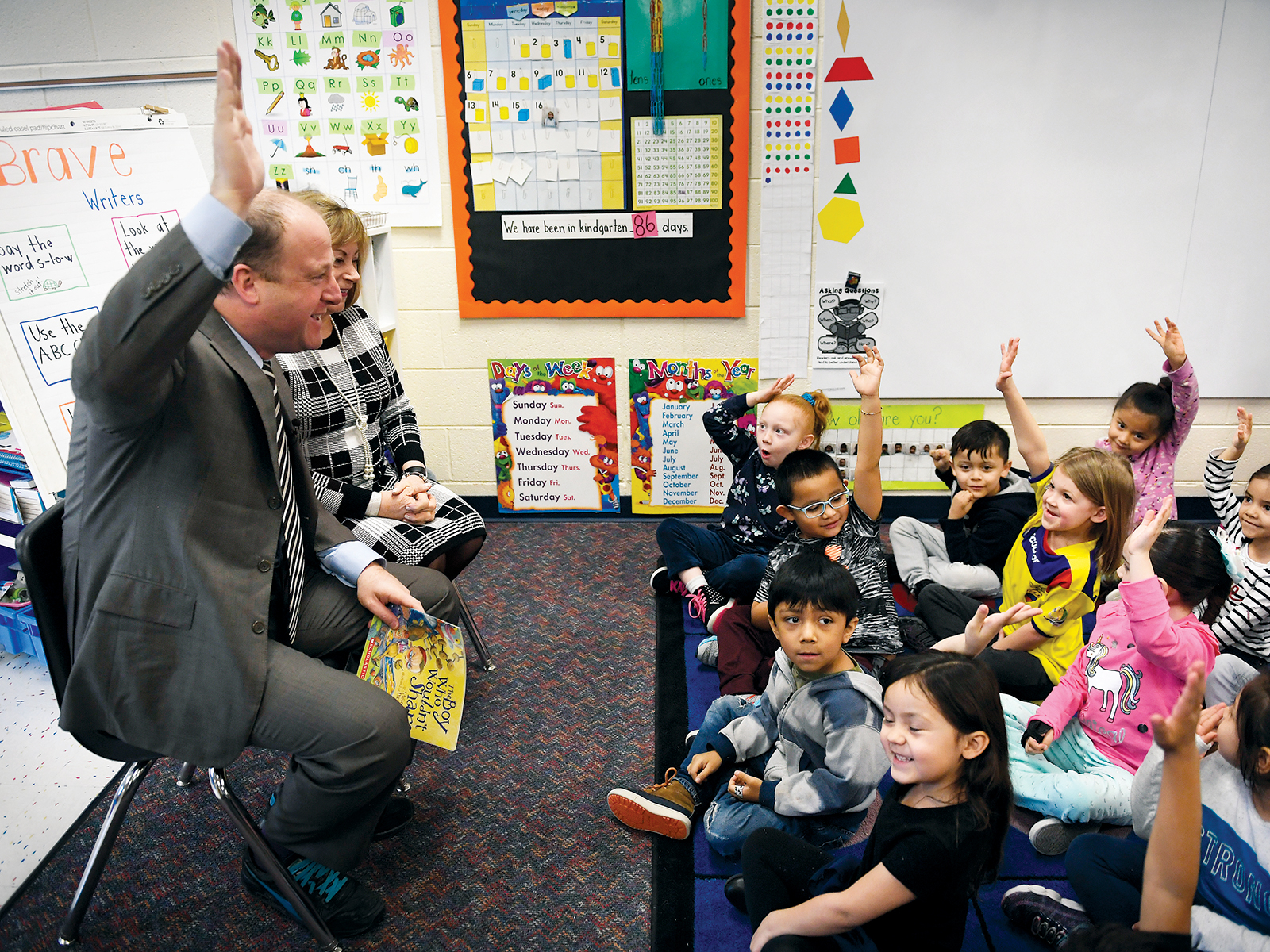The Local newsletter is your free, daily guide to life in Colorado. For locals, by locals.
When the members of the class of 2032 enter school for the first time this month, they’ll make history as Colorado’s first recipients of universal state-funded, full-day kindergarten. Proponents hope the new model will help eliminate the achievement gap between low-income students and wealthier ones. (Previously, many parents had to pay tuition for daylong kindergarten.) But since Governor Jared Polis signed the $175 million bill into law in May, prominent early education experts have been pushing to usher in even more shifts in the way the Centennial State educates its children. “People are reflecting on kindergarten planning a lot right now,” says Rebecca Kantor, dean of the University of Colorado Denver’s School of Education and Human Development, “so it’s the perfect time to consider curriculum.”
In August 2018, Kantor recruited University of Washington early learning specialist Kristie Kauerz, who moved her grant-funded National P-3 Center to CU Denver. While P-3 (shorthand for “preschool through third grade”) advocates for a slew of initiatives, Kauerz and Kantor also argue that longer days should trigger an increase in a childhood mainstay: play.
Twenty years ago, 87 percent of kindergarten teachers nationwide said they devoted an area of their classroom to play. By 2010, the most recent year for which data is available, that number had dropped to 58 percent. Many experts say the decrease was caused by the 2001 adoption of No Child Left Behind, whose reliance on test preparation cut into cavorting. Sentence writing and arithmetic tables replaced time spent, say, playing with blocks or pretending to shop for groceries. Some research suggests these changes stymied development. A 2018 report from the American Academy of Pediatrics, for example, shows that play carves neural pathways in the brain that assist in learning. No wonder that a 2010 study showed that preschoolers remember vocabulary words better if they recreate after lessons.
When the bill passed in May, Kauerz began leading workshops across the state to teach administrators the importance of experiential learning. Kauerz says schools leaders have met her lessons—which will resume this month—with enthusiasm. She believes play could start to become more prominent in Colorado schools as early as 2020. So parents shouldn’t be surprised if they notice more, well, fun in the classroom. Don’t fret: It could be sending your young ones down the road to brilliance.









